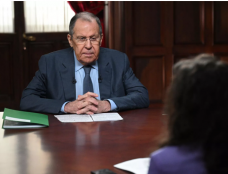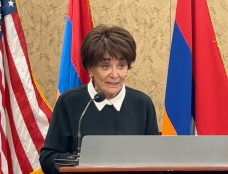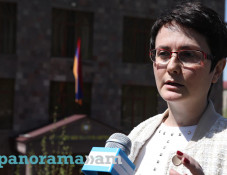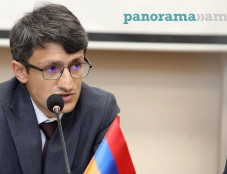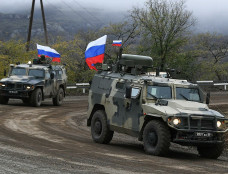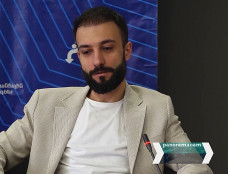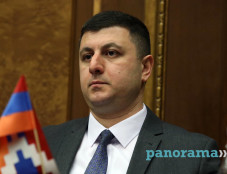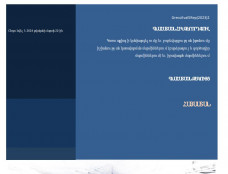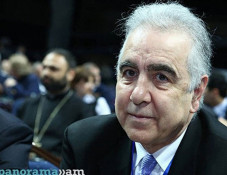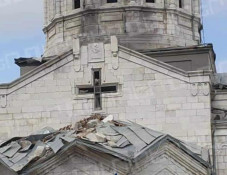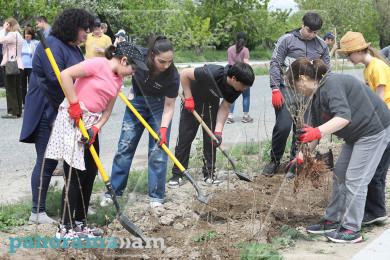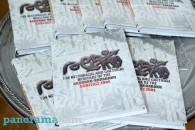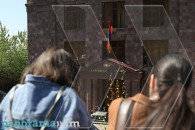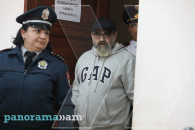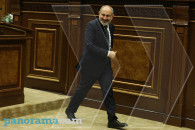
Why we need a new anti-war coalition of the left and right
By Neil Clark
From RT
World War 1 began with an attack on Serbia by Austro-Hungary in 1914. Today’s ongoing World War 3 – of which the current US-led air strikes on Iraq and Syria are only the latest instalment – began with NATO’s attack on Serbia/Yugoslavia in 1999.
The subject of World War 1, its legacy and the new series of US-led wars of aggression which have marked the era of turbo-globalization, was discussed in depth at the International Science and Public Conference “The Great War and the Beginning of a New World: An up-to-date agenda for Humankind,” which was held in Belgrade, the capital city of Serbia, where World War I started 100 years ago.
Scientists, experts and public figures from 15 countries attended and speakers gave their perspectives on both World War I and the current global situation. The speakers came from both the left and the right of the political spectrum, but nearly everyone agreed that the consequences of World War I are still with us today – and that the global position was at least just as dangerous as it had been in 1914.
This year we have already seen the Israeli military assault on Gaza, which cost the lives of over 2,000 people. Thousands have been killed or injured too in Ukraine, following a western-backed anti-constitutional coup against a democratically-elected president and government. Neocon hawks have been at the forefront of the propaganda campaign to demonize Russia and use the Ukraine crisis as pretext to start an economic Cold War war with Moscow and build up NATO forces in Eastern Europe. In Syria, according to UN figures, around 191,000 people have lost their lives in the conflict, which has been deliberately stoked up by the western powers and their regional allies. And now the US and its allies are going to war against the “monster” Islamic State, which their own interventionist policies in the Middle East have enabled.
War, war and more war is all the western elites seem able to offer us – and it was against this rather depressing backdrop of international instability and conflict that the conference met.
From India, Supreme Court advocate and chair of the Indo-Arab Solidarity Council, Professor Bhim Singh, reminded the conference how many of today’s problems in the Middle East were a direct consequence of the broken promises made during World War I to the Arab people for independence by the British, and the so-called “Balfour declaration” which pledged British support for the establishment of a “national home for the Jewish people” in Palestine. Professor Singh said that ordinary people throughout the world – including in the western countries – do not want more war, but the problem is the western elites.
The current Cold War with Russia, and the deceitful propaganda and lies on which it was based, was also discussed by many speakers.
Russian Deputy Foreign Minister Alexey Meshkov warned that the “vicious” attempt to isolate Russia could lead to the same sort of global catastrophe as which occurred in 1914, but stressed that Russia was committed to the peaceful resolution of conflicts. We live in truly Orwellian times, I reflected, when Russia, which has worked for peaceful diplomatic solutions to the crises in Ukraine and Syria – and whose adroit diplomacy prevented a US-led war against a government fighting Islamic State last summer, is portrayed as the “aggressor” by the people who have been serially targeting independent countries.
Vaclav Klaus, the former Czech prime minister and president, told the conference: “The Great War shattered the traditional values and traditions in a much deeper way than ‘only’ enabling the emergence of Nazism and Communism.” He said that when Communism “melted down' 25 years ago, everyone supposed that the skies would be blue forever. "When we look at the current world, we – or at least some of us – don´t see the blue skies anymore. We see other, in many respects, similarly dangerous tendencies.” A potential future war will be more like the first world war than the second one, Klaus warned. “It will not be based on any grandiose plan. It will not be started by terrorists, by radical Islamists, Taliban, or other similar "bad guys". It will be started by people in black ties or fancy business attires, it will be started in Europe if the people of Europe continue looking astray or closing their eyes.”
James Bissett, the Canadian Ambassador to Yugoslavia from 1989-92, said he had been an old Cold War warrior and had been “very proud of NATO.” But he said how all that changed in the 1990s and talked of the significance of the illegal NATO bombing of Yugoslavia, which ushered in a new era of lawlessness. Not only did the attack not have UN Security Council approval, it was also against NATO’s own Article 1 which said that it the NATO countries must “refrain from the threat or use of force in any manner inconsistent with the purposes of the United Nations.”
“Article 1 was changed, but not officially, by Bill Clinton in 1999,” Bissett said. Since the bombing of Yugoslavia we have seen attack after attack on independent sovereign states by the US and its allies.
The list of countries targeted, I noted in my speech, included, among others, Yugoslavia, Afghanistan, Iraq, Iran, Belarus, Sudan, Libya, Syria and now Russia. I stressed how the “first step” in the war against these independent countries is economic warfare – the imposition of sanctions, with Russia the latest target. I also talked about the other steps which Washington and its allies take against a “target country” – including the generous funding of opposition groups, the backing of terrorist proxies – and the propaganda war – which involves demonization of the country’s leader who is labelled “The New Hitler”. Finally, if Washington and its allies’ objectives have not been achieved by the other steps, a full-scale military assault on the country will take place. I said that we have to understand that what is going on today is fundamentally a war on democracy – an attempt to prevent independent, sovereign countries in strategically important parts of the world from following their own path.
Speakers did not just explain what is happening today but offered solutions on how we can derail the ongoing war against sovereign states.
“What is the way out of this dialectic?” asked Jean Bricmont, Fellow of the Royal Academy of Sciences of Belgium. He called for the citizens of the West “to mobilize themselves against their governments and their media in order to stop the current madness.” The modern doctrine of “humanitarian intervention,” which has been used to justify attacks on sovereign states by the US and its allies, was in fact an old imperialistic project dressed up as something new and “progressive.” To counter the serial warmongers Bricmont suggested the idea of “institutionalized pacifism.”
“Not pacifism in the sense of refusing violence under any circumstance, or as amoral exhortation, but in the sense of building institutions that can help the preservation of peace,” he said. “The United Nations and its charter, at least as it was originally conceived, is probably the best example of such an institution.”
Bricmont made a strong defense of the principle of national sovereignty, saying that the necessary respect for the principle means that “the ultimate sovereign of each nation state is the people of that state, whose right to replace unjust governments cannot be taken over by supposedly benevolent outsiders.” It was a theme that other speakers touched on, too.
Several speakers called for NATO and the EU to be disbanded, while Bissett called on NATO leaders to publicly reassert Article 1 – i.e. that the alliance would “refrain from the threat or use of force in any manner inconsistent with the purposes of the United Nations.”
In the argument, “Reassertion of Article 1 – or NATO's complete abolition?” James Bissett made a good case for the former, and while it would be a great improvement on the current situation, in the interests of peace, I couldn't help but feel we'd be better without the organization altogether.
From India, journalist and activist Nasreen Hamid, joint editor of The Voice of Millions, mourned the demise of the great leadership “who founded the Non-Aligned peace movement in the world” and reminded delegates that the Non-Aligned Movement had been initiated from the same hall in Belgrade (The Sava Center), over 50 years earlier.
“We, the people of the world who believe in peace, have been forced out of the scene by the big powers,” she said. Hamid focused on the global weapons trade and the need for “complete disarmament.”
“The disarmament movement should be protected for the cause of the survival of the human race,” she declared. She quoted Mahatma Gandhi, who said: “Civility and humility are expressions of the spirit of non-violence. Incivility and insolence indicate the spirit of violence.”
What I wondered, as I listened to Hamid speak, was what would the great Mahatma Gandhi make of today's world – and the serial warmongering of the US and its allies?
From Russia, Founding President of the Dialogue of Civilisations World Public Forum, Russian Ralways CEO Vladimir Yakunin, said it was “necessary to reshape all the political processes in the states of the world based on really equal democratic principles, the principles which are sovereign and not fictitious, on civilizational human values and equal dialogue of civilizations.” He said the globalists' goal was to create a world in which everyone looked the same, and thought the same.
We can of course see the attempts to enforce uniformity in the way pro-war gatekeepers in western countries seek to silence dissenting voices, limit the parameters of “acceptable” debate and their attempts to marginalize anyone who opposes the neocon/fake left warmongering agenda.
Zivadin Jovanovic, the Foreign Minister of Yugoslavia at the time of the illegal NATO bombing, and the President of the Belgrade Forum of the World of Equals also drew parallels with the past and today's situation in his speech, entitled: “A Look at the Lessons of World War 1.”
In my speech, I argued that an important, practical way in which pressure can be put on the pro-war elites of the western countries would be the creation of a formal anti-war alliance which unites supporters of national sovereignty on both the left and right. Already that alliance is taking place informally – we saw it in evidence at our Belgrade conference – where conservatives and socialists came together to oppose the current dangerous trends in international affairs.
The era of endless war and international lawlessness has made old “left” and “right” party political divisions look irrelevant.
I told the conference: “The big divide in international affairs today is not between Democrats of Republicans, or Labour and Conservative, but between those who think it is right for the US, the EU and their allies to ride roughshod over the sovereignty of others – to ignore international law and target any countries they wish – and those who believe that every country of the world, whether big or small, should be free to follow its own path, without threats of attack or bullying by others because of its independence.”
I called for an alliance between “socialists, communists, pale-conservatives, libertarians and moderate nationalists to stand together against war – and support the right of countries to follow their own paths without bullying and interference from outside.” Of course, the neocons and the pro-war fake-left will try and divide us – but we must stay firm and work together, remembering that we are the vast majority, and that they are a tiny few.
This anti-war alliance – together with the other steps discussed at the conference – can help bring about the radical, democratic change in western politics that is urgently needed to defeat the serial warmongers and the destroyers of national sovereignty.
One hundred years on from the outbreak of World War 1, it is surely our most urgent priority to bring the current World War 3 to an end and help usher in a new era of peace, non-interference and respect for international law. The International Science and Public Conference in Belgrade showed us how that can be achieved.
Newsfeed
Videos





